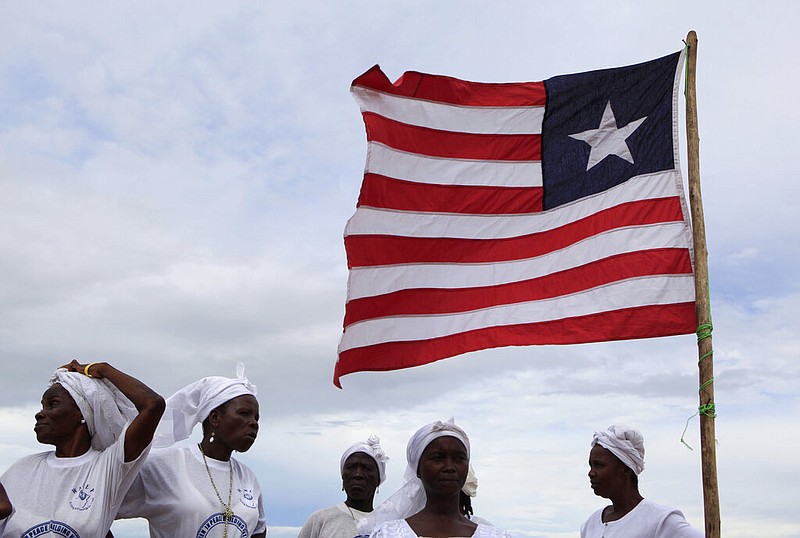The back to Africa movement saw many of its Black residents emigrate from counties all over Arkansas throughout the late 1800s.
In 1816, white abolitionists and slaveholders formed the American Colonization Society (ACS) in Washington, D.C. The groups disagreed fundamentally on slavery and the role of African Americans in American society, but they were united by the goal of resettling freed African Americans in Africa. The abolitionists, many of whom were Quakers, felt that freed Blacks would be better able to attain their freedom in Africa than in the United States. They also viewed the repatriation of Africa as a means of spreading Christianity. The slaveholders, on the other hand, wanted to be rid of freed Blacks for fear that they would incite slave rebellions in the vast majority of the Black population who were still enslaved.
The ACS spent its first few years trying to secure land in West Africa for their repatriation efforts. In 1821, they made a deal with indigenous West African leaders for a plot of land located on what was then called the Grain Coast and established the Cape Mesurado colony. The very next year, the ACS started sending freed Black families to the colony. The first few years were challenging for the Cape Mesurado colonists, as they faced many new challenges, including malaria, war with indigenous tribes, trouble growing coffee crops instead of cotton and issues adjusting to their new environment. Despite all these issues, the colony survived. In 1824, it was renamed Monrovia, after President James Monroe, one of the ACS founders, and the colony became the Republic of Liberia.
In 1847, Liberia declared its independence from the American Colonization Society. The African American colonists created a flag, constitution and a society that deeply reflected their American history. The interest and emigration to Liberia by freed Blacks went through a series of surges and declines as the conditions for Blacks in America changed over the next several decades. Liberia grew, as more than 13,000 freed Blacks settled there before the American Civil War. These freed Blacks included those whose freedom was purchased by the ACS and those born into freedom. Emigration to Liberia declined though, as slavery was abolished at the end of the Civil War. During the American Reconstruction interests in emigration to Liberia increased, as African Americans faced increased discrimination and violence, including measures aimed at keeping African Americans away from voting booths.
In 1878, Anthony L. Stanford, a Black physician, Methodist preacher, and Republican state senator from Phillips County, Arkansas, contacted the ACS to ask for their assistance in taking Black citizens to Liberia. In 1879, he and twenty Black residents of Phillips County moved to Liberia, and another 118 followed next year from the Phillips and Woodruff counties.
Emigration to Liberia from Arkansas waned in the 1880s, as Black men were allowed to vote in 1882, and as Arkansas saw an influx of African Americans escaping harsh conditions in search of more work and cheap land. From 1882 to 1889, few families emigrated to Liberia from Arkansas at the encouragement of African Methodist Episcopal (AME) Church Reverend Henry McNeal Turner of Atlanta and self-proclaimed "professor" Jacob C. Hazeley.
However, in the late 1880s and early 1890s, interest in emigration to Liberia increased as violence against African Americans in Arkansas and the rest of the South increased with the passing of the Jim Crow segregation laws, which marked the rise of lynchings and racial terror enforced by the Ku Klux Klan. Black sharecroppers and small landowners overwhelmed the Washington ACS office with pleas for help to emigrate to Liberia.
The majority of those applications originated in the Woodruff, St. Francis, Lonoke, and Jefferson counties, along with cities such as Little Rock and Atkins, places where African Americans faced the most persecution.
The ACS could not ignore this high level of need and desire to emigrate to Liberia. Thus most of the emigrants sent to Liberia in the early 1890s came from Arkansas. The African Americans in Arkansas became so desperate to leave America that 34 Black citizens of Arkansas sold all of their possessions and traveled to New York to beg the ACS for passage to Liberia. Their arrival created a refugee crisis that the ACS was not equipped to handle, so just as the desire of Black Arkansans to emigrate to Liberia increased, the ACS was in no position to help them.
For the Black Arkansans who were able to emigrate, their opinion of Liberia was divided.
While some were pleased with their new homes, others had a tough time adjusting to the African climate and their new lifestyles.
Those who were unsatisfied and could afford it secured passage back to America.
This article is among features at explorepinebluff.com, a program of the Pine Bluff Advertising and Promotion Commission. Sources: www.BlackPast.org -- AMERICAN COLONIZATION SOCIETY (1816-1964); www.EncyclopediaofArkansas.net -- Back--to--Africa Movement; www.History.com -- How a Movement to Send Formerly Enslaved People to Africa Created Liberia; www.pbs.org -- The Lone Star: The Story of Liberia.
Ninfa O. Barnard wrote this article for explorepinebluff.com.

